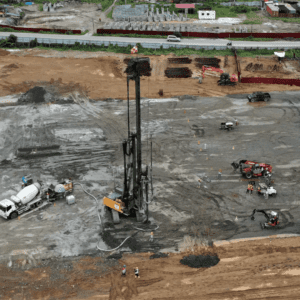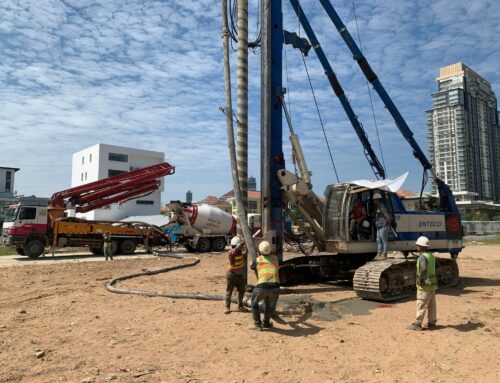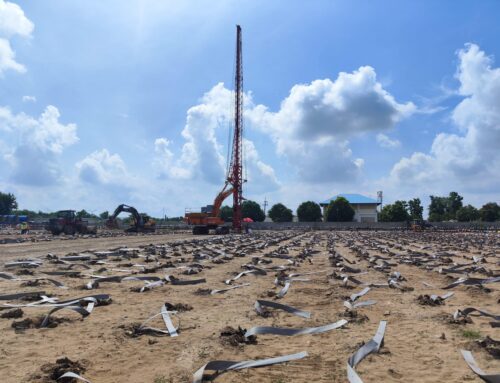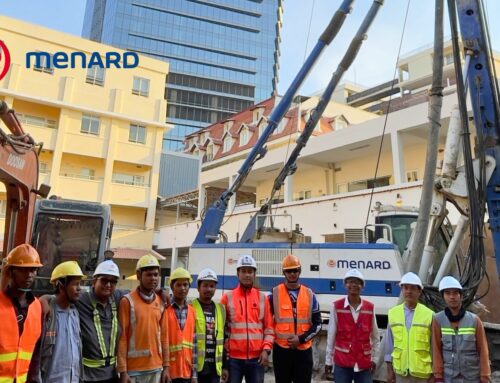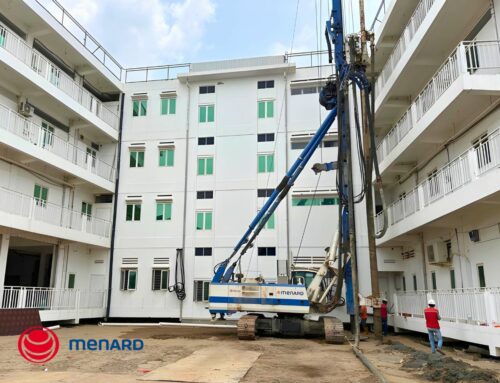Rendani Airport is a key transportation hub located approximately 6 kilometers east of Manokwari city center in the West Papua province of Indonesia. The airport is owned and operated by the Indonesian government, specifically the Ministry of Transportation. Rendani Airport has one runway, which is 2,500 meters long and 45 meters wide, and it serves several domestic airlines such as Batik Air and Lion Air. Rendani Airport provides air transportation services to passengers, including flights to destinations such as Sorong and Jayapura. In 2019, the airport served a significant number of passengers, totalling 295,439, and handled 2,922 aircraft movements. Due to the increase in traffic, the airport owner, the Indonesian Ministry of Transportation, sought to expand the runway to accommodate larger aircraft. To fulfil this need, Menard Geosystems Indonesia participated as a subcontractor to treat the foundation for the extension of the runway. The project has been successfully completed, providing benefits to our client by improving the airport’s capacity and ensuring a safe and efficient operation.
Project Overview
Menard Geosystems is a leading ground improvement and geotechnical engineering company that has established a strong reputation in the construction industry for its innovative and cost-effective solutions. Menard Asia, a subsidiary of Menard Geosystems, has recently completed a ground improvement project for the runway extension of Rendani Airport in Indonesia.
Soil Condition
Rendani Airport is located in Manokwari, Indonesia, and is situated on a coastal plain that is characterized by soft soils, including alluvial and clay soils. These soil conditions can pose significant challenges for construction and engineering projects, particularly when it comes to ensuring the stability and safety of the airport runway. To address these challenges, Menard Geosystems used their expertise in ground improvement and geotechnical engineering to design and install Controlled Modulus Columns (CMCs or Kolom Grout Modular) to reinforce and stabilize the soil beneath the runway. This approach was highly effective in improving the soil condition and ensuring that the airport runway is safe and capable of supporting heavy aircraft loads.
Menard Solution
The project involved the use of Controlled Modulus Column (CMC or Kolom Grout Modular) technology, a technique that has proven to be highly effective for global soil stabilization and mitigate long-term settlement. The CMCs were designed with a grid or spacing of 2 meters and a diameter of 0.42 meters. The total area treated in the project was 11,120 m2 with a total depth of 67,920 linear meters. The Controlled Modulus Column (CMC) technology used in this project is an alternative to conventional piling systems for improving the ground condition before further construction.
Compared to piling systems, CMC technology offers several advantages. It is faster, more cost-effective, and less disruptive to the surrounding environment since it requires compact equipment and generates less noise and vibration. Moreover, CMC technology can be used in various soil conditions, making it a versatile solution for soil or ground improvement.
Overall, Menard Geosystems has established itself as a leader in the ground improvement and geotechnical engineering industry. Its commitment to safety, innovation, and quality has earned it a strong reputation among its clients and partners. The completion of the runway extension project at Rendani Airport is just one example of the company’s successful track record in delivering effective and sustainable solutions to complex engineering challenges.
Indonesia 2022
Technique : Controlled Modulus Column (CMC)
Application : Ports and Airports
Owner : Ministry of Transportation
Contact one of our experts today!
[contact-form-7 id="4444" title="References Forms"]

